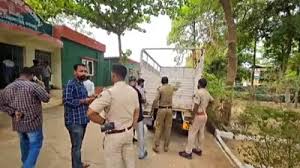The Ministry of Health and Family Welfare (MoHFW) has designated snakebite cases and deaths as a "notifiable disease" in India, despite the fact that snakebites are causing public health concerns.
As per data from the Ministry, around 50,000 deaths in India occur due to an estimated 3-4 million snakebites annually. This is the cause of half of all snakebite fatalities worldwide. The cases are glaringly underreported, though.
"Snake bites are a public health concern because they can result in death, morbidity, and disability in some situations. In a letter to the Secretaries of Health of every State and Union Territory (UT), Union Health Secretary Punya Salila Srivastava stated that farmers, tribal people, etc. are more vulnerable.
“You are requested to make snakebite cases and deaths a ‘Notifiable Disease’ under the relevant provisions under the State Public Health Act or other applicable legislation”.
All public and private healthcare facilities, including medical schools, were urged in the letter to "make it mandatory to report all suspected, probable snakebite cases and deaths in the enclosed format."
Approximately 90% of snakebites in the nation are caused by the saw-scaled viper, Russell's viper, Indian cobra, and common krait.
Even though polyvalent anti-snake venom (ASV), which contains antibodies against these four, works in 80% of cases, there are still issues with the lack of medical facilities and qualified personnel to treat snakebite victims.
Other major hindrances are the lack of data on incidence, morbidity, mortality, socio-economic burden, treatment patterns, etc.
In March, MoFHW launched the National Action Plan for Prevention and Control of Snakebite Envenoming (NAPSE) to address the issue of snakebite.
According to Srivastava, the action plan seeks to "halve the snakebite-related deaths by the year 2030."
The plan outlines the strategic elements, roles, and duties of the various parties involved in the management, control, and prevention of snakebite.
Increasing the nation's surveillance of snakebite cases and fatalities is one of NAPSE's main goals.
A "robust surveillance system for accurately tracking snakebite incidents and deaths" was demanded by Srivastava. This will yield useful information to guide and assess the efficacy of interventions.
Additionally, according to Srivastava, it will assist the stakeholders in comprehending "accurate burden, high-risk areas, factors responsible for deaths of snakebite victims," which will lead to better clinical management of victims.

.jpg)
.jpg)
.jpg)
.jpg)
.jpg)

.jpg)